A Decade of Favoritism? Why Some Fans Believe the NBA Gave Stephen Curry Superstar Privilege — And What the Numbers Actually Say
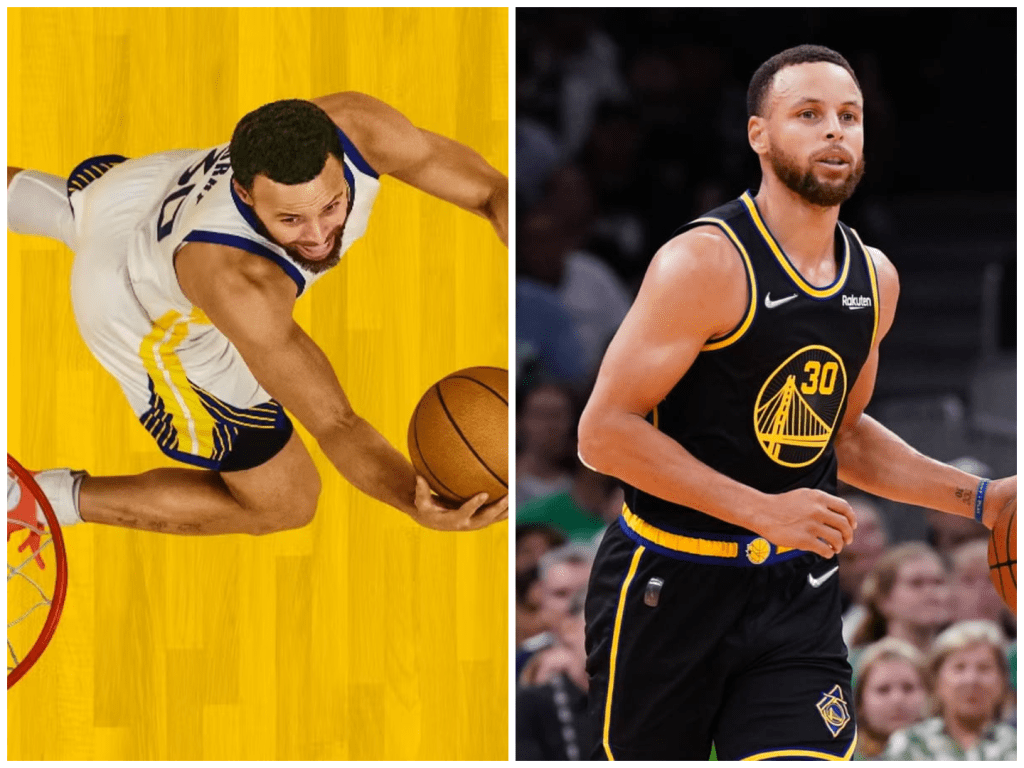
It’s a question that’s floated around barbershops, Reddit threads, and late-night NBA debates for years now. A whisper that grew louder with every shimmy, every logo three, every foul not called. Did the NBA protect Stephen Curry? Was the league’s golden boy, the face of the modern game, quietly given the kind of grace other stars could only dream of?
To say that Curry is one of the greatest players of all time is not even up for debate anymore. He’s the greatest shooter the game has ever seen. A two-time MVP. A four-time champion. A revolution all by himself. He transformed how teams are built, how defenses are structured, and how kids play basketball. But somewhere along the way, people started to notice something strange. While stars like LeBron James, James Harden, Russell Westbrook, and Kevin Durant were endlessly picked apart, booed, and scrutinized, Steph seemed to move through it all untouched. The smile. The jerseys. The lovable underdog story. It made people love him — and some people, quietly, resent him.
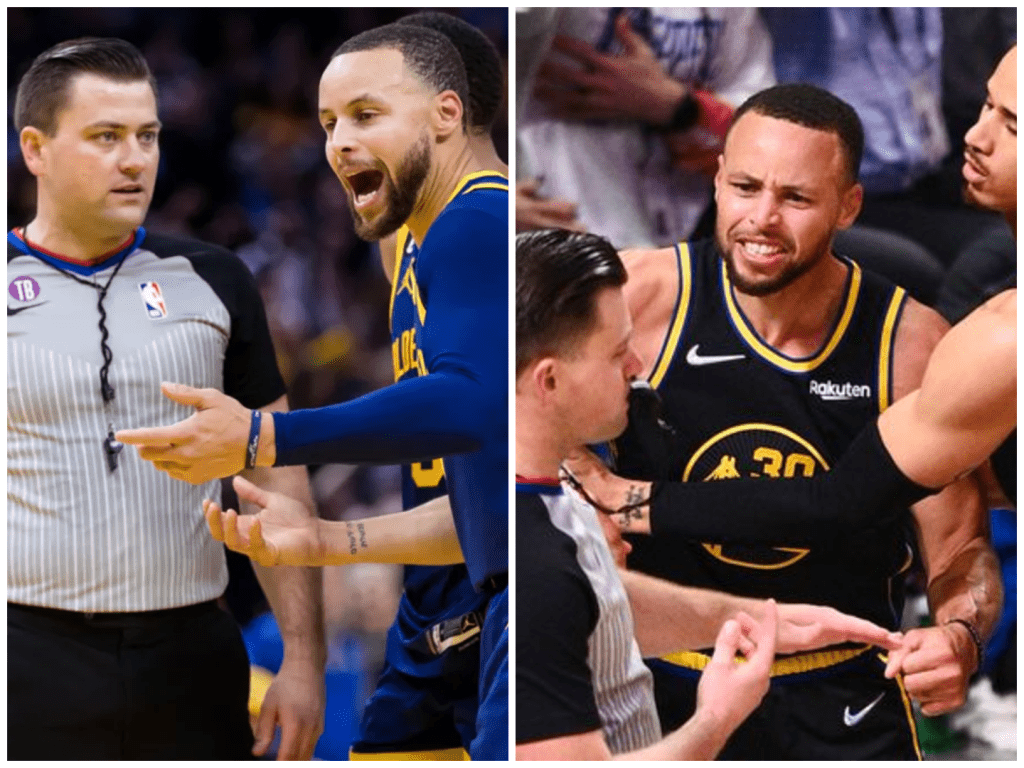
When you look at the officiating over the past decade, the numbers are murky but the perception is loud. Fans have long pointed out that Curry doesn’t get called for travels that other players do. That he gets away with extended movement on screens, pushes off on defenders with impunity, or that he can exaggerate contact without earning the same “flopper” label given to others. When Steph shows emotion — slams a mouthguard, yells at a ref — it’s “passion.” When someone else does it? Technical foul. Suspension. Narrative damage.
It’s not that Curry doesn’t get fouled or frustrated. He absolutely does. But there’s something about the way it’s received. In Game 6 of the 2016 NBA Finals, when Steph fouled out and threw his mouthpiece into the crowd, it was a rare moment of public frustration. He was fined — as he should’ve been — but somehow it didn’t dent his public image. Could you imagine if Draymond Green did that? Or DeMarcus Cousins? Or even LeBron?
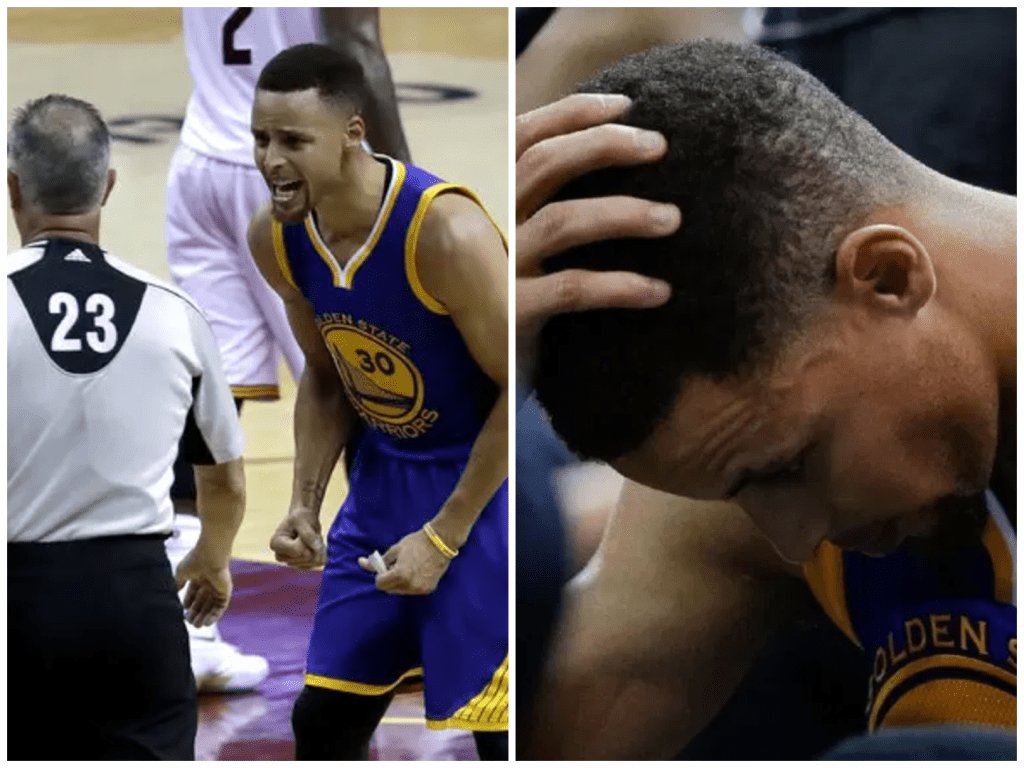
Some fans believe it comes down to branding. Steph Curry sells. He always has. From the Under Armour empire to his family-friendly image, he’s been the NBA’s safest superstar. Clean-cut. Relatable. No burner accounts. No drama. No ego. And maybe that’s why the league leaned in. It’s easier to push a superstar when the public already sees him as pure. But did that mean giving him actual on-court advantages?
Take technical fouls for example. According to NBA stat logs between 2015 and 2023, Curry ranked surprisingly low in techs compared to other MVP-level guards. He averaged fewer than two techs per season during his peak run, while stars like Westbrook, Chris Paul, and even Luka Doncic racked up 10 or more annually. But anyone who watches the games knows Steph complains just like everyone else — sometimes more. He jumps up after missed calls. He throws his arms. He stares down refs. So why the different whistle?
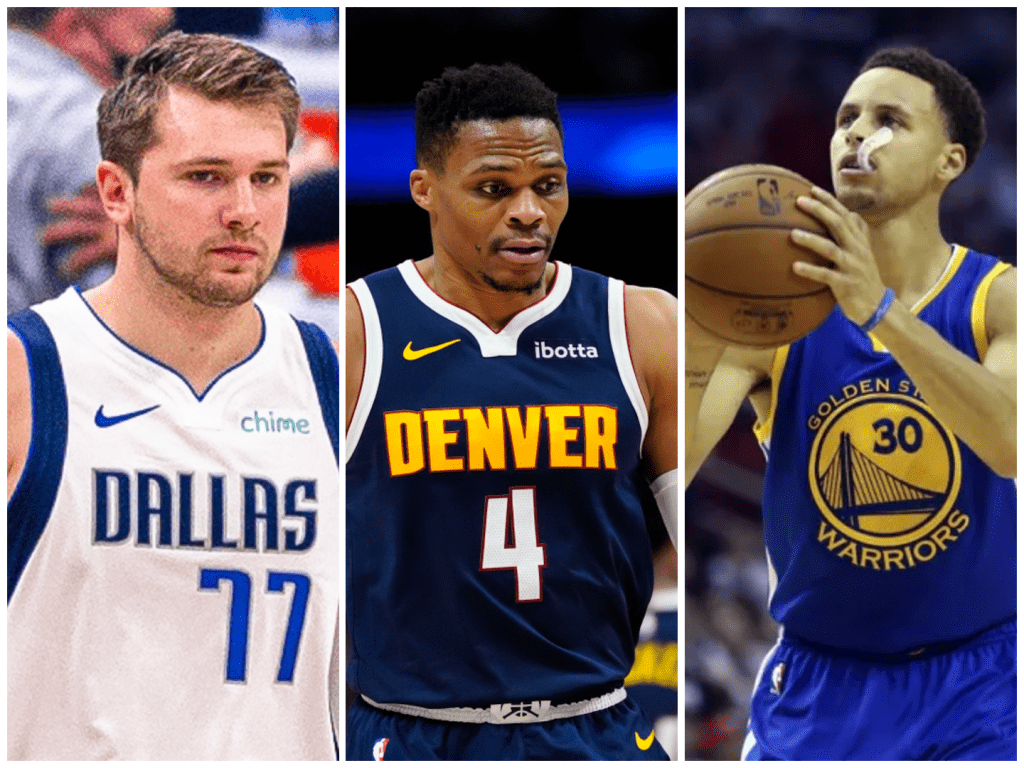
Maybe it’s not about the refs. Maybe it’s us. Maybe fans and media are so caught up in the fairy tale that we subconsciously lower the bar. Curry’s rise was so unlikely, so genuine — the undersized kid from Davidson who rewrote the NBA’s DNA — that it became impossible to criticize him. Even when the Warriors formed a superteam in 2016, with Kevin Durant joining a 73-win squad, most of the vitriol was aimed at KD. Steph somehow slid past that firestorm, untouched.
Compare that to LeBron James. Every move he made — from “The Decision” to Miami, to returning to Cleveland, to building the Lakers — came with an avalanche of hate, hot takes, and blame. Westbrook got slammed for stat-chasing. Harden got labeled a flop merchant. Kyrie, a headcase. But Steph? He danced between it all, almost like the league, the media, and the fans didn’t want to touch him. He was too valuable, too good for the brand, too… nice.
That doesn’t mean he asked for protection. There’s no evidence that Curry demanded special treatment or that the NBA issued a secret memo telling refs to take it easy on him. He just benefited from a perfect storm of timing, success, and personality. He came along just as the NBA needed a new face. After years of dominance by LeBron and the polarizing chaos that followed Kobe’s twilight years, Curry was something fresh. And the league leaned in.
Still, it’s worth asking — if Curry had been more brash, more vocal, more controversial, would his career have been received differently? Would people be quicker to point out his defensive flaws, his occasional poor shooting nights, or the fact that he didn’t win a Finals MVP until 2022?
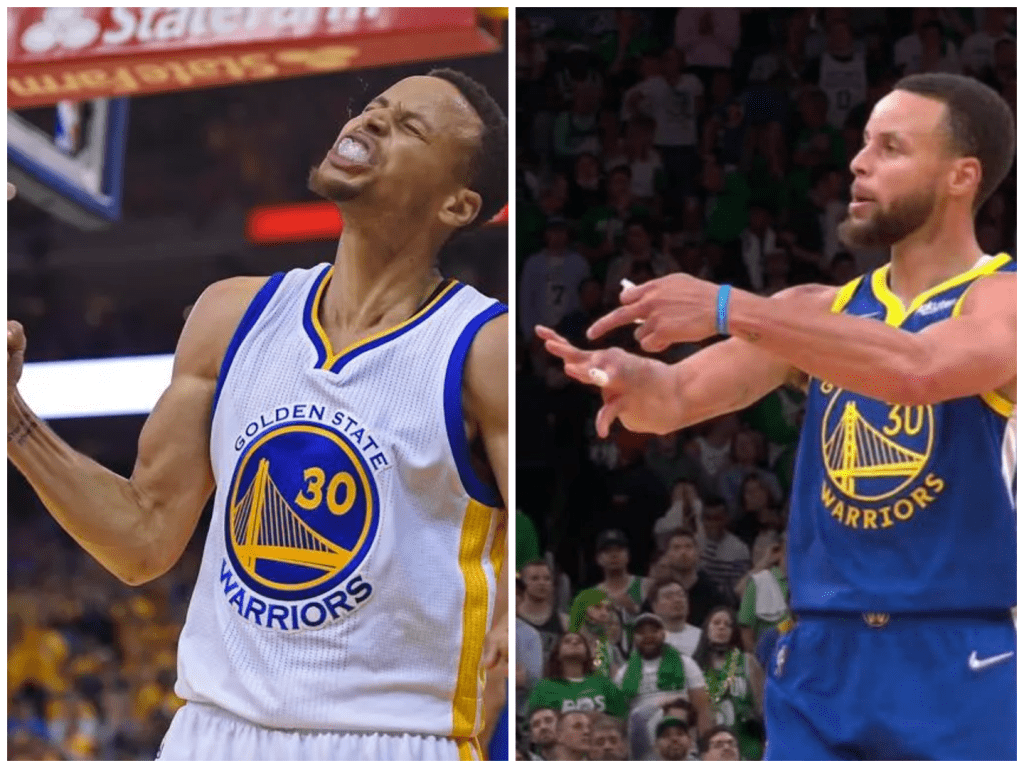
Even now, in his late 30s, Curry still commands overwhelming admiration. When he drops 40, it’s magic. When he misses 12 threes in a game, it’s a rare off-night — not an indictment. The same can’t always be said for other superstars. And maybe that’s the real story here. Not that the NBA protected Curry with a mandate, but that everyone — fans, media, even opponents — gave him more space to be loved, to fail without punishment, to win without blame.
But maybe that’s just the curse of being too likable. Maybe the reason he was never hated is because he never gave people a reason to hate him. Maybe the reason he got fewer techs is because he earned more respect. Maybe it’s not favoritism. Maybe it’s just how rare it is to be that good, that long, with that much grace.
Still, when you look back on this era and ask who got the benefit of the doubt more than anyone, Stephen Curry’s name is going to come up. Whether that’s protection or privilege, or just the price of being basketball’s most charming genius — well, that’s for the next debate.